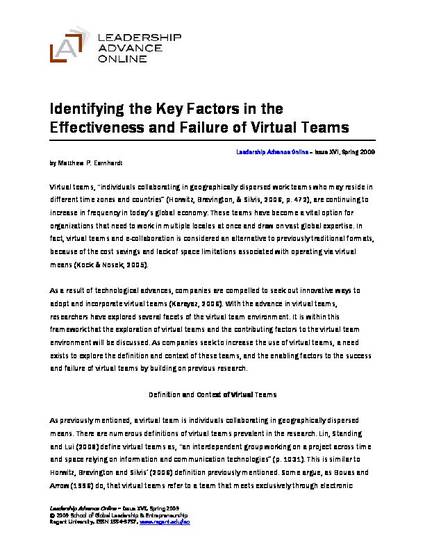
Article
Identifying the Key Factors in the Effectiveness and Failure of Virtual Teams
Leadership Advance Online
Submitting Campus
Worldwide
Department
Organizational Leadership
Document Type
Article
Publication/Presentation Date
4-1-2009
Disciplines
Abstract/Description
Virtual teams, “individuals collaborating in geographically dispersed work teams who may reside in different time zones and countries” (Horwitz, Bravington, & Silvis, 2006, p. 472), are continuing to increase in frequency in today’s global economy. These teams have become a vital option for organizations that need to work in multiple locales at once and draw on vast global expertise. In fact, virtual teams and e-collaboration is considered an alternative to previously traditional formats, because of the cost savings and lack of space limitations associated with operating via virtual means (Kock & Nosek, 2005).
Publisher
Regent University's School of Business & Leadership
Citation Information
Matthew P Earnhardt. "Identifying the Key Factors in the Effectiveness and Failure of Virtual Teams" Leadership Advance Online Vol. N/A Iss. XVI (2009) p. N/A - N/A Available at: http://works.bepress.com/matthew_p_earnhardt/5/
